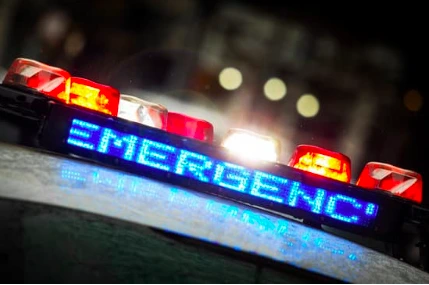
Opioid overdose is a serious medical emergency that can lead to respiratory failure, coma, and death. Opioids are a class of drugs that include prescription painkillers, such as oxycodone, hydrocodone, and fentanyl, as well as illegal drugs like heroin. While opioids can be used safely under the guidance of a healthcare professional, misuse or abuse of these drugs can lead to an overdose. At Lake Ave Recovery, we have created individualized treatment programs that aim to treat opioid dependence. Our expert staff is experienced in treating substance use disorders as well as recognizing the signs of relapse and overdose.
Symptoms of Opioid Overdose
The symptoms of opioid overdose can vary depending on the person and the amount and type of drug they have taken. However, there are some common signs to look out for if you suspect someone may be experiencing an opioid overdose.
Shallow Breathing
One of the most significant symptoms of an opioid overdose is slow or shallow breathing. Opioids work by binding to opioid receptors in the brain and spinal cord, which can slow down breathing and heart rate. When a person takes too much of an opioid drug, they can experience respiratory depression, which can lead to breathing that is slow, shallow, or irregular. In severe cases, this can lead to a lack of oxygen in the body, brain damage, and death.
Pinpoint Pupils
Another symptom of opioid overdose is pinpoint pupils. Opioids can cause the pupils to constrict, making them smaller than usual. This can happen even in low light conditions, and the pupils may not respond to changes in light as they normally would.
Drowsiness, Disorientation
Other symptoms of opioid overdose can include extreme drowsiness or unresponsiveness, confusion or disorientation, and pale or clammy skin. In some cases, the person may experience seizures or convulsions, or their lips and fingertips may turn blue. They may also have a slow or weak pulse, or their heartbeat may become irregular.
Overdose Can Happen to Anyone
It is important to note that opioid overdose can occur even if the person has a high tolerance to opioids. Over time, the body can become accustomed to the effects of the drug, meaning that the person may need to take larger doses to achieve the same level of pain relief or euphoria. However, this can also increase the risk of overdose.
Opioid overdose is a serious medical emergency that can lead to respiratory failure, coma, and death. If you suspect someone may be experiencing an opioid overdose, seek medical help immediately and stay with the person until help arrives. Remember, opioid overdose can happen to anyone, regardless of their tolerance to the drug, so it is essential to take precautions and seek help if you suspect an overdose.
Why Choose Lake Ave Recovery for Opioid Addiction Treatment?
Lake Avenue Recovery offers flexible opioid rehabilitation programs that fit your needs. If determined that your course of treatment requires medical supervision or monitoring, you will be guided to the care of trained medical staff to ensure your well-being throughout that process. Once completed, you would be eligible for any one of Lake Avenue Recovery’s outpatient programs, including day treatment, evening treatment, and intensive outpatient program (IOP) services.
You also have access to a wide range of wellness-promoting activities, including yoga, meditation, Tai-Chi, massage, Qigong, acupuncture, and personal training, all at our beautiful waterfront location. These wellness activities are designed to foster resiliency, an innate ability which we believe, here at Lake Ave Recovery, is fundamental to developing the recovery capital necessary to engage in sustainable healthy living.
